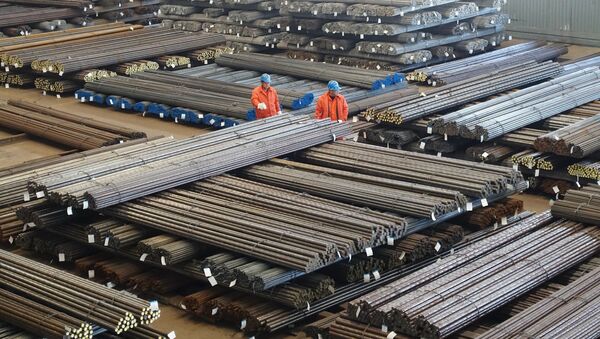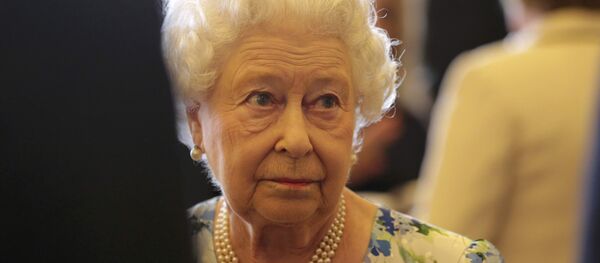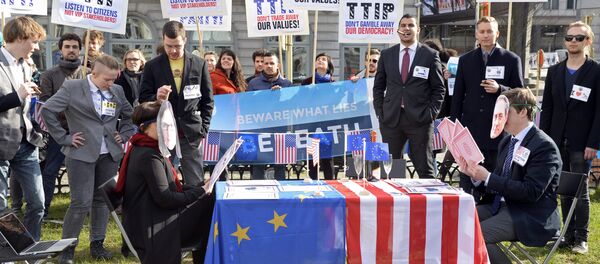Over 80 countries have already recognized China's market economy status, including Russia, Brazil, Australia, New Zealand, Switzerland and Singapore.
However, the EU appears to be split on the issue; while the UK, Netherlands, Finland, Sweden and Denmark are in favor, Germany has reservations and wants certain safeguards in place. Italy is opposed to recognizing China as a market economy, which would effectively limit the level at which the EU could impose trade tariffs on goods imported from China.
While the European Commission has found 52 areas in which China does not meet its conditions for market economy status, the US is even more implacable, and has 98 conditions it believes China does not meet.
In a European Parliament debate on Tuesday, many MEP's argued against granting China the status, arguing that to do so would make it more difficult for the EU to protect itself from Chinese dumping of goods.
EU health and food safety commissioner Vytenis Andriukaitis told MEPs it was "undeniable" that China was not a market economy, and said the EU Commission was working on a "new approach" that would include a strong trade defense system and at the same time ensure compliance with the WTO rules, EUObserver reported.
"I think that some organizations are reckoning on political factors in order to put pressure on China. However, it's absolutely clear that that method of behavior is a synonym for futile efforts."
"The market status of China is decided only by China, it's not connected with anybody else's recognition. Today's refusal by the EU to grant the recognition is a kind of disguise of its protectionist politics, caused by a bad period in world trade."
"For China it's very clear – no market economy means no progress. The Chinese government has very clearly marked out the country's path of development," Fengying said.
Mikhail Belyaev, head economist at Russia's Institute of Stock Market and Management, agreed that the opposition of the US and EU to China's demand for market economy status is rooted in political as well as economic considerations.
"Of course, there are obvious economic issues, but there is a very strong political component. Politically, the US and Europe, but more the US, want to restrain China's development and its entry into the world economy," Belyaev said.
"China is seriously strengthening its position in international financial organizations. The yuan, for example, is included in the IMF's basket of reserve currencies. To restrain China, competitors argue that Chinese companies are dumping their goods. This is one of those cases when the economy is again used by China's competitors to solve their geopolitical problems."
"I don't exclude the possibility that the EU takes its own position and puts in place some reservations and so on."
"This is about the political-economic position of the EU. I think the recognition or non-recognition of market characteristics is a way of exerting or not exerting pressure on Chinese partners in different industries."
"This is a way of imposing a certain limit, particularly regarding those goods which the Chinese state really supports the production of, so it is really a political-economic question," Belov said.





